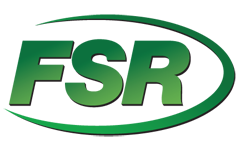
Educational Facebook Use Policies
Appropriate methods of integrating Facebook into educational settings, and into the general lives of educators, are beginning to be introduced via scholarly research. Many educational institutions, however, have not yet established educational Facebook use policies. The majority of the literature impresses upon the reader the delicate nature of educational Facebook use (particularly in basic education settings). Davis’ (2010) article and those before hers collectively describe the entire spectrum of educational Facebook use. In short, some institutions officially encourage appropriate and professional educational Facebook use, some ban it entirely, and others have simply not acknowledged educational Facebook use (Davis, 2010; Maranto & Barton, 2010; Carter, 2008). While many institutions avoid educational Facebook use policy making, Carter (2008) notes The Association of Texas Professional Educators, which provides official recommendations for appropriate educational Facebook use. This guide, for example, describes how educators should proceed if they receive friendship requests from students. In the article, Carter ultimately makes a call to action, which is in essence a recommendation to engage in statistically beneficial educational Facebook use while using common sense to guide all educator actions on Facebook.
Implications & Recommendations
Considering the existing research, there are several implications regarding Facebook as an educational tool. Based on the literature, students and teachers alike seem to have significantly positive attitudes toward possible and actual educational Facebook use. Therefore, it makes sense to acknowledge these attitudes by moving forward with the development of educational Facebook use methods. While literature concerning online privacy and teacher self-disclosure on Facebook may appear to be conflicting, logical and generalizable recommendations can be synthesized. These recommendations include being aware of institution policies regarding Facebook use, being knowledgeable about educational Facebook use and its methods, and using professional judgment combined with an understanding of educational morality.
It is clear that Facebook pages are being successfully used by educators to connect students to supplemental information and educational materials. This means that any educator not bound by institution Facebook policies has an opportunity to use a Facebook page to provide these supplements. Utilizing a Facebook page is also an opportunity to demonstrate appropriate educational Facebook use to students, which has been shown to improve student perceptions of an educator’s professional versatility (Mazer, 2007). Moreover, using Facebook pages (and educational Facebook use in general) is an opportunity to demonstrate appropriate Facebook behavior, which may promote equally appropriate Facebook behavior among students. Utilization of a Facebook page also has the perquisite of operating without the need for teacher-student Facebook friendships, as anyone can access a Facebook page if it is designated as a public one.
While Facebook groups require the instructor and students to become Facebook friends, they have been shown (via the case studies cited) to successfully facilitate collaboration and learning beyond the classroom. Instructors who decide to utilize these learning opportunities via a Facebook group may do so using appropriate judgment. One example of such judgment is opening a Facebook account that is professional by nature (i.e., the educator’s timeline information is appropriate for any audience). Another example is familiarizing students with how a Facebook group functions and what is considered appropriate Facebook group behavior (and institution Facebook policies if applicable). Educators who utilize Facebook groups adeptly and appropriately would be wise to stay current on scholarly literature regarding educational Facebook use, in order to avoid potential problems.
Potentially Controversial Studies
The Hart and Steinbrecher (2011), and Sewyln (2009) studies may prove to be controversial ones. The former directly quotes student posts that, while taken from sudents’ public timelines, were taken without the knowledge of the students. If the student timeline is set to public, does this mean that it is acceptable to publish that timeline’s information? The latter also directly quotes student posts. Sewlyn’s study differs in that the researcher requested Facebook friendships with students, intending to observe, record, and directly quote student posts (without their knowledge or permission). Given the student timelines were not public, was it acceptable to record and publish these student posts? Furthermore, does this particular instance violate Facebook’s terms of use agreement? Finally, would the students observed in Hart & Steinbrecher’s study have kept their timelines public and those in Sewyln’s study accepted the researcher’s request for a Facebook friendship if they had known the researchers’ intentions? Perhaps not. It is recommended these questions be addressed by those with an appropriate professional background for doing so.
Needed Research
Many would agree that Facebook and educational Facebook use are growing faster than research on either, particularly the latter. In turn, there are many educational Facebook use related research topics that need to be pursued. First and foremost, (1) a generalizable code of professional, moral, and ethical conduct should be designed and offered to educators engaging in Facebook use and educational Facebook use. Institutions are varied, and it makes sense to develop a code that would in theory apply to most educational settings. Next, (2) a guide for actual integration of Facebook into educational settings should be developed. Such a guide should include instructions on opening a Facebook account and developing a profile and timeline as an educator and professional. It should then provide a step by step guide for setting up and using Facebook pages and Facebook groups. Another (3) research endeavor should attempt to catalogue all of the specific ways Facebook is being integrated into classroom lessons. One teacher (of your author’s acquaintance), for example, conducts a project in which students take on the personas of various historical figures and discuss a modern day issue as those figures (the personas are aware they are using a Facebook group for discussion.) This example is likely to be one of hundreds (or more) which should be organized and described to practitioners to potentially enhance national (or global) Facebook best practices. This could be accomplished by a simple open ended survey which asks instructors to describe Facebook-based lessons they utilize. Research regarding educational Facebook use should also (4) be conducted at the basic education level. The majority of literature (including the studies cited here) regarding educational Facebook use focuses primarily on students in higher education settings. Simultaneously, the majority of examples of educator Facebook misuse (and the consequences of that misuse), occur at the basic education level. This gap in the literature makes all of the proposed research recommendations imperative.
Conclusions
The goal of this literature review was to find answers to crucial educational Facebook use questions. These questions included:
- How is Facebook currently being used as an educational tool?
- Are there positive student attitudes toward educational Facebook use?
- How is Facebook being used educationally between peers?
- What is the most reasonable solution to the various privacy concerns?
It was identified that educators are effectively using Facebook to disseminate important information and supplemental materials to their students via Facebook pages, enriching their educational experience. It was also shown that educators are successfully utilizing Facebook groups to facilitate collaborative learning beyond the classroom. It was established that there are significantly positive attitudes toward both theoretical, and actual, educational Facebook use. It was also discovered that both teachers and students are utilizing Facebook to engage in unofficial professional development and collaborative learning, respectively. A brief discussion concerning two potentially controversial studies was also offered. Finally, literature-based implications regarding educational Facebook use were identified and recommendations regarding appropriate educational Facebook use were made. Several recommendations for needed further study were also made.
